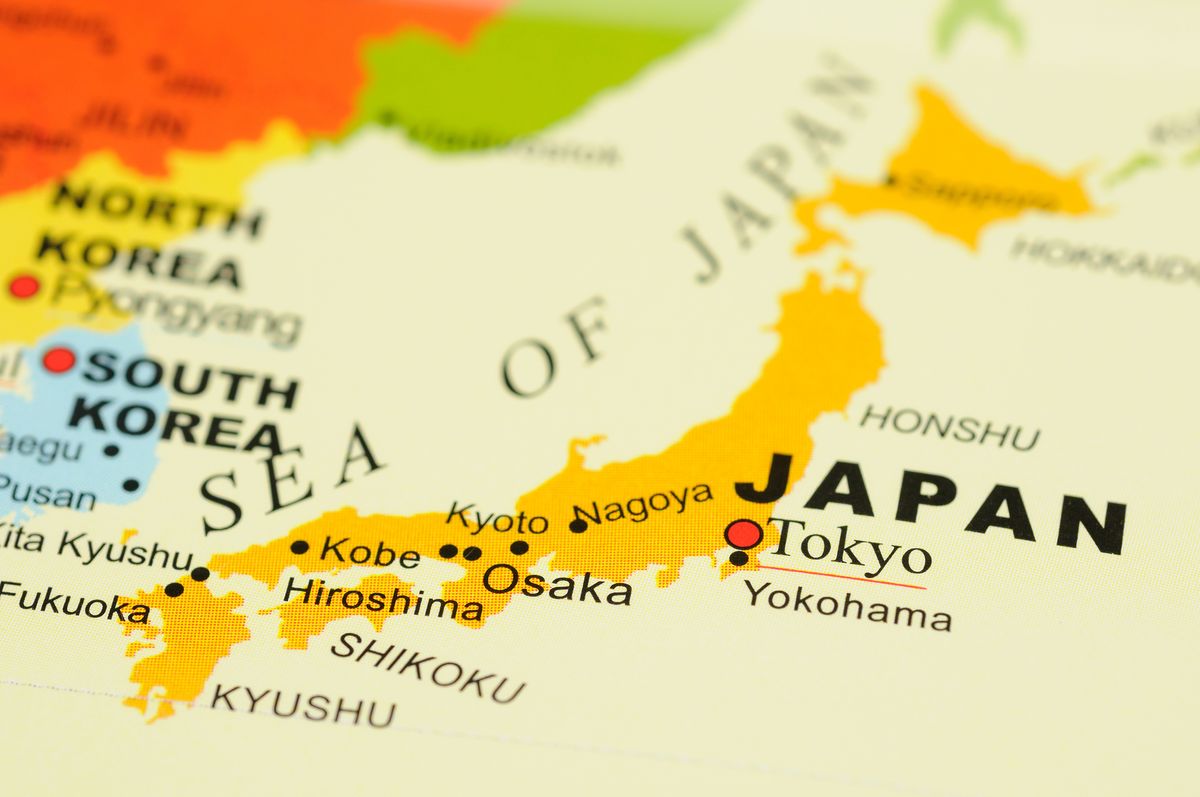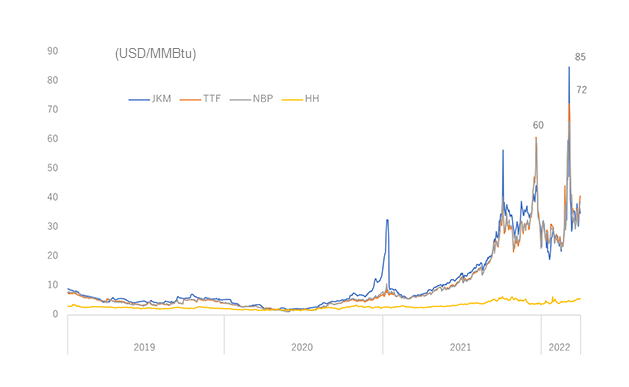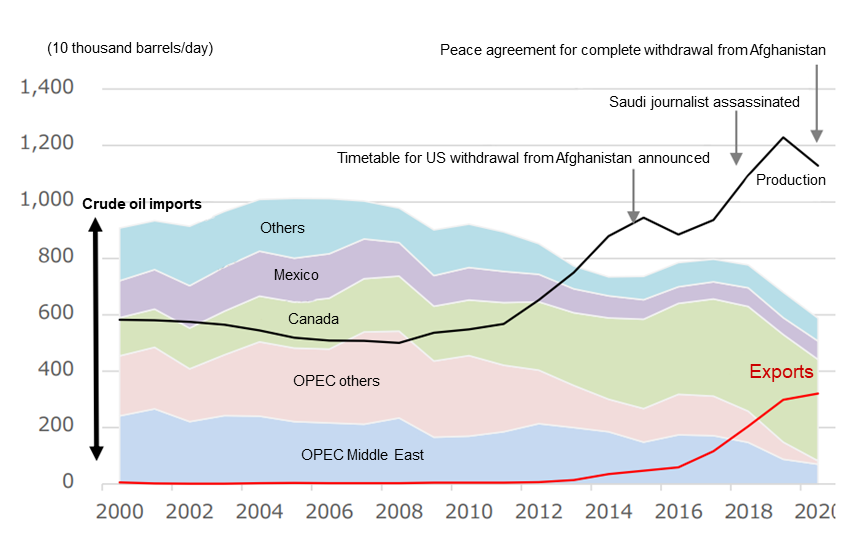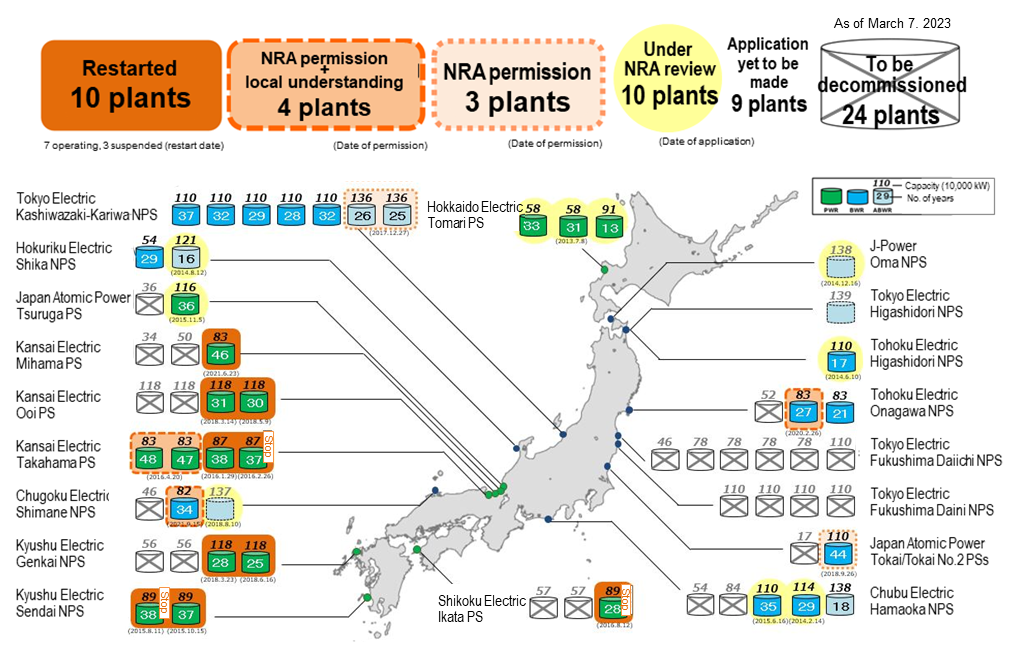The Increasing Importance of Energy Security in the Face of the Energy Crisis
(in provisional translation)
(English ver.) 2023-08-04

Fifty years have passed since the first oil crisis. Now in 2022, the world is reminded anew of the importance of energy security. Soaring energy, electricity and gas prices are impacting people’s lives around the world. In the winter of FY2022, the stable supply of electricity in Japan became severely strained, and various administrative organizations and power utilities delivered messages asking people to cooperate in saving energy and electricity. What has caused the energy crisis we are currently facing? What measures are the government and energy-related businesses taking to ensure a stable supply of energy in the future? This article focuses on the theme of energy security, which is currently attracting much attention.
Changes in the energy situation involving Japan
If asked what the most significant event of 2022 was, many of us would answer it was Russia’s aggression against Ukraine. It is most heartbreaking to see many civilians in Ukraine becoming victims of the war. It is also regrettable that we cannot tell when the conflict will come to an end. The war is impacting not only the two countries in confrontation, but also other countries around the world in various ways.
In particular, the international energy market has been seriously disrupted by the war. Russia, one of the most resource-rich countries in the world, exported enormous amounts of oil, gas and coal. However, since its aggression against Ukraine started, the international energy supply was disrupted significantly as Russia curbed exports of its natural resources to put pressure on the West, while on the other hand, the western allies imposed sanctions on Russia including the embargo on imports of Russian resources.
Germany, for example, was heavily dependent on Russia for its energy demand with 55% of its natural gas requirements imported from Russia in 2020. However, by the end of July 2022, five months after Russia’s aggression against Ukraine started, Germany’s natural gas imports from Russia had significantly decreased.
Under such circumstances as those described above, the global supply and demand of energy was drastically tipped, resulting in price hikes in the international energy market.
Changes in natural gas/LNG prices

(Source) Energy White Paper 2022
Despite the tightening global supply and demand for energy, emerging nations such as India and Southeast Asian countries are increasing their requirements for energy in line with their economic development. According to a report published by an international organization, the energy demand in India will expand dramatically to 2050 from 2010 levels with natural gas increasing 3.2-fold, crude oil 2.8-fold, and nuclear power a whopping 11.2-fold. Demand expansion in this way may contribute to further price hikes in the future.
Energy producing countries also have undergone significant changes. The United States, once a net energy importer, has now become a net energy exporter with its exports surpassing imports thanks to what is referred to as the Shale Revolution, which decreased dependence on energy producing countries particularly in the Middle East. Furthermore, some media reports pointed out that the US’s commitment to the Middle East has changed as seen in its withdrawal from Afghanistan. These changes may impact Japan, which is still heavily dependent on the Middle East, increasing risks associated with its energy procurement.
oil imports by the United States

(Source) Material distributed at the second meeting of the GX Implementation Council
While Japan is making efforts to develop relationships with countries in the Middle East and promote dialogues emphasizing the need for producer/consumer collaboration, the structural changes described above can potentially affect energy security for Japan.
Domestic factors affecting the stable supply of energy
We have explained energy crises occurring across the globe. In line with these international situations, there are concerns about another energy crisis in Japan. As a prerequisite for discussion, the following two points are worth noting regarding the drastic changes in the domestic electricity market.
First, power system reform has been advancing in Japan in recent years with the electricity retail business fully deregulated in 2016. Before the deregulation, power utilities in the respective regions had monopolized the supply to electricity users. With the deregulation implemented, various companies entered the electricity business and offered diverse plans for electricity rates to customers.
Second, the use of renewable energy has expanded thanks to the introduction of the Feed-in Tariff (FIT) scheme in 2012. This scheme mandates that the power utilities purchase electricity generated by renewables at a fixed rate to support the introduction of renewable energy such as solar power. Renewable energy is expected to become a primary source of power, and its introduction has been accelerated rapidly. Its percentage of power generation rose to 19.5% in FY2020, doubling from 9.5% in FY2010.
Thanks to those changes in the electricity market, electricity users have more options than before. Furthermore, the development of power grids has been advanced, allowing more extensive interchange of electricity between regions, which is helpful in emergency situations with more supply flexibility added.
On the other hand, it has been pointed out at some councils of the government that these changes may have caused the recent situation of tightening supply and demand for electricity. For example, the output from power generation by renewables varies depending upon the time of the day, weather, and season. Therefore, renewable energy needs other power sources such as thermal power capable of absorbing its output variations to optimize the total volume of power generation. On the contrary, thermal power stations, which have suffered low operation rates due to the expansion of renewable energy since the deregulation, have been suspended or decommissioned. Lack of measures to maintain those back-up power sources may be one of the reasons for the instability of electricity supply.
In addition, the global efforts toward decarbonization have led to the suspension of some projects to construct new thermal power stations.
Considering Japan’s energy policy from the perspective of security
As explained above, Japan faces various challenges in and outside the country. In order to tide over the winter of FY2022, the Government of Japan put various measures in place for a stable supply of LNG, which included introducing a framework for electricity and gas companies to interchange LNG between them and a system for the government to procure LNG for city gas in an emergency situation.
As international competition for securing energy resources is intensifying, the Government of Japan is launching efforts in a bid to secure a stable supply of energy resources, which include exploring opportunities for investment in LNG projects in collaboration with Asian countries and forming a framework for cooperation with them in an emergency situation, as well as requesting LNG producing countries to increase their production.
Furthermore, measures for nuclear power stations have also been put in place. After the accident that occurred in 2011 at TEPCO’s Fukushima Daiichi NPS, nuclear power stations across the nation suspended their operation to implement measures for enhancing safety. As of March 2023, ten nuclear power plants had been restarted having met the new regulatory standards. Efforts are being made to allow nuclear power plants to operate longer, by shortening the period of engineering work for enhancing safety and adjusting the periodic inspection schedule.
Additionally, with regard to the seven nuclear power plants that have been granted permission to change their installations in conformity with the new safety standards, voluntary safety measures are being taken by the utilities in addition to the mandatory safety requirements. The government is also in the forefront toward obtaining understanding from the local communities to allow those nuclear power plants to be restarted steadily.
The efforts described above will contribute to enhancing energy security, avoiding power outages, and curbing price hikes of energy.
However, these efforts alone are not sufficient to provide energy security on a medium-to-long-term basis. Without taking fundamental measures, we will face a situation where energy crises occur periodically.
We hope that the readers of this article will consider the best approach to energy policy in terms of security, including how to utilize renewable energy and nuclear power. It is a real challenge facing every one of us.
Division in charge
About this article
Energy Strategy Office, Commissioner’s Secretariat, ANRE
About Special Contents
Research and Public Relations Office, Commissioner’s Secretariat, ANRE
![]() The original Japanese text of this article; Click here
The original Japanese text of this article; Click here
